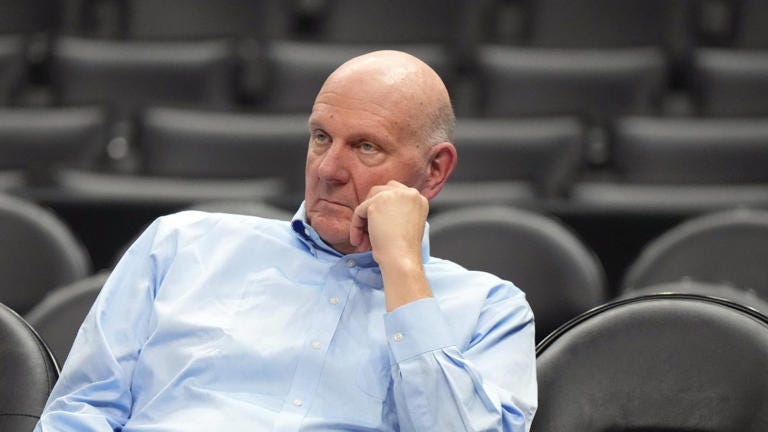Is Steve Ballmer the Most Underrated CEO of the 21st Century?

🌈 Abstract
The article provides a nuanced analysis of Steve Ballmer's tenure as CEO of Microsoft, examining both the positives and negatives of his leadership. It argues that while Ballmer is often portrayed as the "worst CEO of the modern era," this assessment is overly simplistic and fails to recognize his significant accomplishments.
🙋 Q&A
[01] Ballmer's Performance as CEO
1. What were some of the positives of Ballmer's leadership?
- Ballmer was good at normal business operations, increasing Microsoft's revenue from $15 billion to $70 billion and earning nearly a quarter trillion dollars in profit during his tenure.
- He launched successful and market-leading products like Xbox and acquired important strategic ones like Skype.
- Ballmer made a smart choice in selecting Satya Nadella as his successor, who has gone on to become one of the best successor CEOs ever.
- Ballmer was effective at developing and cultivating Microsoft's developer talent, which is a difficult task that many of Microsoft's peers have struggled with.
2. What were some of the negatives of Ballmer's leadership?
- Ballmer was not a product visionary and failed to recognize the threat of the iPhone, which was a major business failure.
- He continued to focus on Windows as the lynchpin of Microsoft's strategy, even as the OS declined in global market share.
- The launch of Windows Vista under Ballmer's tenure was a major product failure, leading to a significant loss of market share.
3. How did Ballmer's choices set Microsoft up for future success?
- Ballmer's support for the Azure cloud platform in its early days, despite criticism, laid the groundwork for its later success under Satya Nadella.
- Ballmer's investments in products like Bing, Office, and Microsoft Research positioned the company well for the AI revolution.
- Ballmer's distribution and enterprise sales capabilities have allowed Azure to be a credible competitor to AWS.
4. What were some of Ballmer's weaknesses as a leader?
- Ballmer held on to the past too long, clinging to Microsoft's Windows-centric strategy and being skeptical of open source, which ultimately hurt the company.
- Ballmer's management style, including the use of a "stack ranking" system that led to high employee turnover, was flawed.
5. Why does Ballmer often receive such harsh criticism?
- Ballmer's flamboyant personality and lack of technical background compared to his predecessors and successor make him an easy target for criticism.
- Microsoft's high-profile product failures, particularly in mobile, have overshadowed Ballmer's other accomplishments and led to him being seen as the "worst CEO of the modern era."
[02] Reassessing Ballmer's Legacy
1. How does the article argue that Ballmer's legacy should be reassessed?
- The article suggests that Ballmer's performance should be viewed as a mix of strengths and weaknesses, rather than being judged solely by his worst failures.
- It argues that Ballmer set Microsoft up for future success in many ways, such as through his support for Azure and other strategic investments, and that he should be recognized for these positive contributions.
- The article contends that Ballmer was an effective business operator who achieved significant financial results, even if he was not a visionary product leader.
2. What is the overall assessment of Ballmer's tenure as CEO?
- The article concludes that Ballmer was not the "worst CEO ever" and that he was an underrated leader who made important contributions to Microsoft's long-term success, even if he had significant weaknesses and failures.
- Ballmer's legacy is complex, with both strengths and weaknesses, and he should be evaluated more holistically rather than being judged solely on his most high-profile missteps.